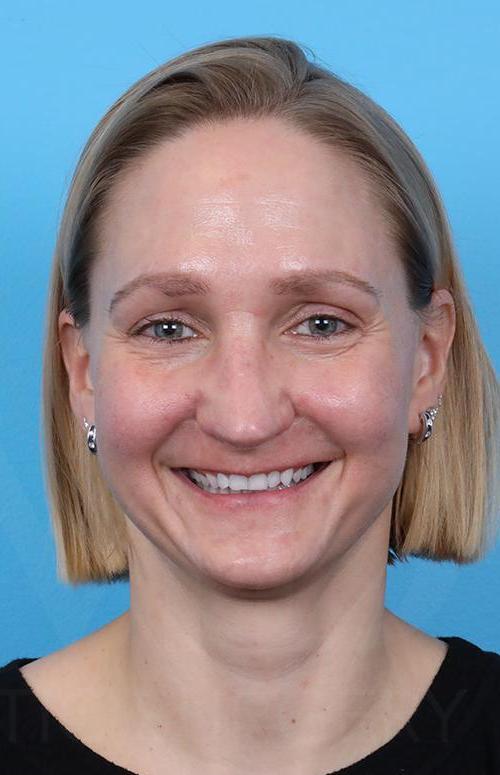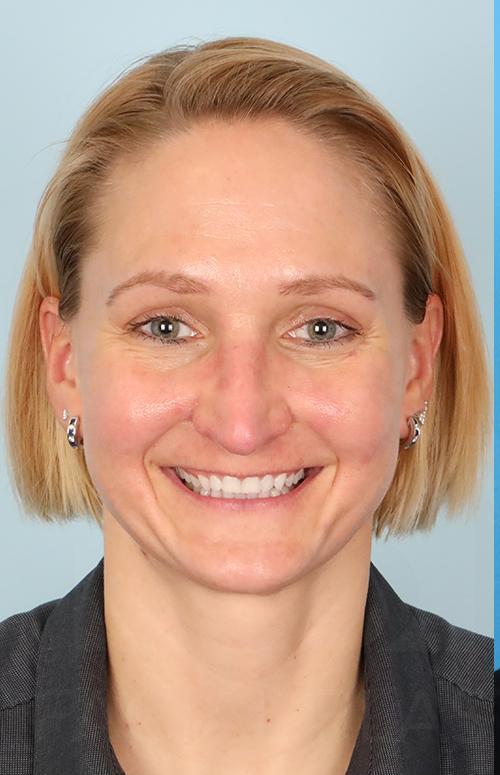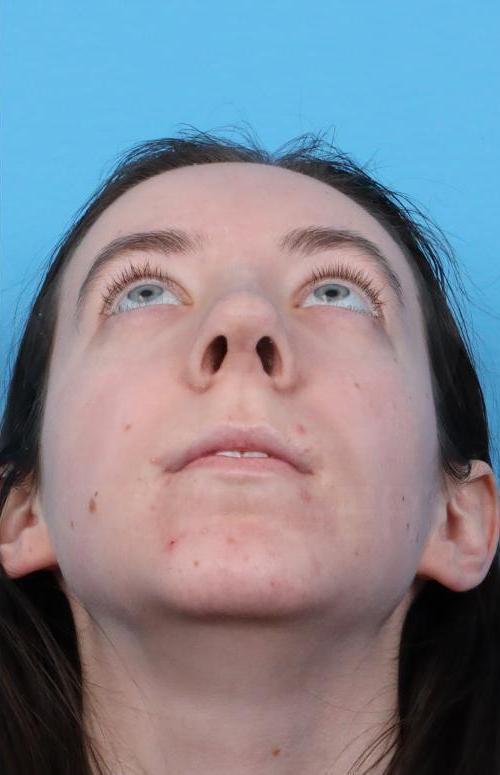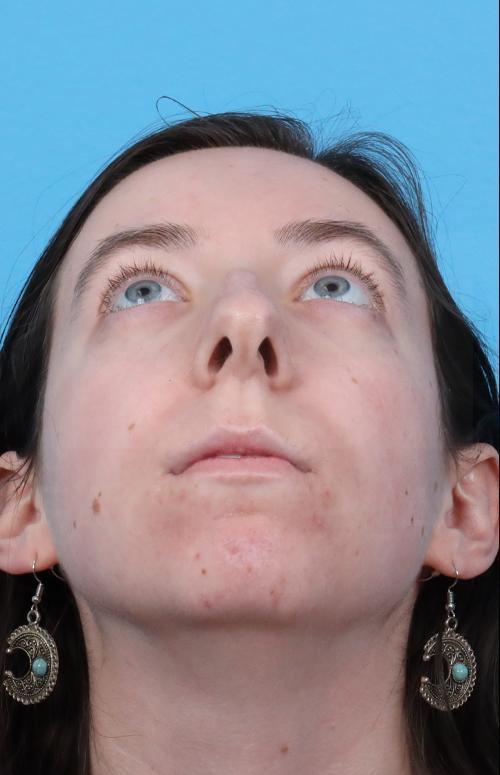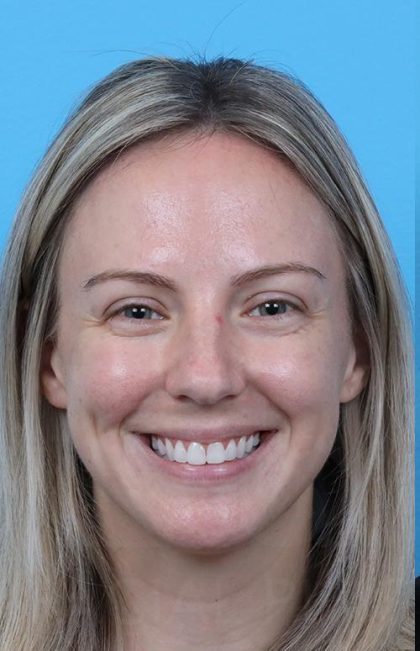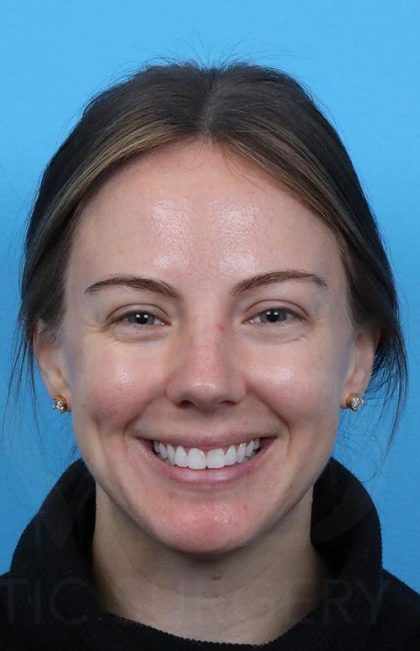Lymphatic Reconstruction
Conveniently located to serve the areas of Lake Forest, Glenview and Grayslake, IL

Lymphatic reconstruction is a specialized surgical procedure designed to improve the function of the lymphatic system. The lymphatic system is one of the components of the circulatory system, and it helps the immune system function properly. (1) A blocked and/or damaged lymphatic system can lead to lymphedema, a chronic condition that causes fluid retention and swelling in different areas, commonly the arms and legs.
Dr. Chad M. Teven is a board-certified reconstructive and plastic surgeon at Northwestern Medicine and Clinical Assistant Professor of Surgery at Northwestern University’s Feinberg School of Medicine. He specializes in many types of procedures, most notably lymphatic reconstruction and reconstructive microsurgery. Dr. Teven aims to provide the highest quality of care, approaching each patient as if they were a member of his own family.
To learn more about how you may benefit from lymphatic reconstruction, please schedule a consultation at our Lake Forest office by contacting Dr. Teven online.
Contents
- 1 About Lymphatic Reconstruction
- 2 Benefits of Lymphatic Reconstruction
- 3 Suitable Candidates
- 4 Personal Consultation
- 5 Preparation
- 6 Procedure
- 7 Recovery
- 8 Results
- 9 Cost of Lymphatic Reconstruction in Chicago, Illinois
- 10 FAQ
- 10.1 What is lymphedema?
- 10.2 How long will my lymphatic reconstruction recovery take?
- 10.3 Will I have significant scarring after my lymphatic reconstruction?
- 10.4 How long will the results of my lymphatic reconstruction procedure last?
- 10.5 Can I receive another treatment in conjunction with my lymphatic reconstruction procedure?
- 11 References
About Lymphatic Reconstruction
Lymphatic reconstruction is a procedure focused on restoring proper lymphatic drainage and alleviating lymphedema symptoms. Lymphatic restoration procedures are often performed when less invasive treatments, such as manual lymphatic drainage or compression, are no longer an effective option to manage fluid retention. While lymphatic reconstruction is not a cure for lymphedema, this treatment can help patients manage their symptoms. This approach shows promising potential for helping the body develop new lymphatic vessels (lymphangiogenesis). (2) At Northwestern Medicine, Dr. Teven can perform lymphaticovenular anastomosis, vascular lymph node transfer, or liposuction to help each patient manage and reduce their symptoms.
Lymphedema
There are two types of lymphedema: primary and secondary. Swelling can occur in different areas of the body, but most commonly in the arms and legs. (3) Primary lymphedema is a congenital condition that causes the lymphatic system to malfunction. Secondary lymphedema results from injury or obstruction to the lymphatic system. The most common cause of lymphedema worldwide is filariasis, a parasitic condition. (4) However, many people also develop secondary lymphedema because of or while receiving treatment for cancer. (3)
Benefits of Lymphatic Reconstruction
There are several benefits to undergoing lymphatic reconstruction. These benefits include:
- Reduced Swelling: Lymphatic drainage can help reduce fluid retention associated with lymphedema.
- Improved Comfort: Patients often experience a decrease in daily comfort caused by excessive fluid buildup.
- Customizable Treatment Options: Each procedure is personalized according to the patient’s anatomy and the extent of treatment.
- Potential Restoration of Function: In some cases, lymphatic reconstruction can restore one’s normal lymphatic functions.
- Enhanced Quality of Life: Reduced symptoms can positively impact one’s emotional well-being and overall lifestyle.
To learn more about how you may benefit from lymphatic reconstruction, please schedule a consultation at our Lake Forest office by contacting us online.
Suitable Candidates
Suitable candidates for lymphatic reconstruction are those who have been diagnosed with lymphedema. Candidates often have a previous history of treatment, such as radiation or surgery, that may have affected the lymphatic vessels. Patients may also be experiencing persistent swelling in their limbs or other areas of the body, as well as the accumulation of body fat and scar tissue.
All candidates interested in lymphatic reconstruction should be in overall good health, free from any underlying medical conditions that may affect their ability to heal. Additionally, patients should have realistic expectations about what they can accomplish with the procedure. Patients should also be nonsmokers or prepared to quit until fully healed. Dr. Teven will determine each patient’s candidacy at their consultation.
Personal Consultation
Each patient at Northwestern Medicine is asked to attend a personal consultation before starting their lymphatic reconstruction procedure. During each personal consultation, Dr. Teven will converse with each patient regarding their medical history, current medications, experienced concerns, and treatment goals. He may also evaluate each patient’s physical condition. From there, Dr. Teven will recommend the best procedure for each patient’s needs. To schedule your personal consultation with Dr. Teven at our Lake Forest office, please contact us online.
Preparation
Each individual will receive a set of pre-operative instructions during their consultation, instructing them on how to prepare for their procedure. Dr. Teven may also ask each person to temporarily refrain from taking medications and/or supplements that thin the blood. Those who smoke should quit several weeks before their appointment, ceasing any use until fully recovered.
Patients will need to schedule time off work to focus on their recovery, as well as fill any necessary prescriptions before their treatment. We also recommend that you prepare your household and arrange assistance, as you may experience limited mobility after the procedure, especially if your lower limbs are treated.
Procedure
Lymphaticovenular Anastomosis (LVA)
Lymphaticovenular anastomosis is a procedure that redirects lymphatic fluid by connecting healthy lymphatic vessels to nearby veins. (5) Dr. Teven performs this procedure on those with early-stage lymphedema. Patients undergoing LVA may either receive local or general anesthesia depending on the circumstances of their procedure. Dr. Teven will make small incisions near functioning lymphatic vessels before using a specialized microscope to evaluate the surrounding lymphatic vessels and pathways. He will then meticulously suture the lymphatic vessels to the nearby venules or tiny veins. Afterward, he will carefully close the incisions. He usually performs this procedure on an outpatient basis, with the duration of treatment lasting approximately two to four hours.
Vascularized Lymph Node Transfer (VLNT)
Patients receiving a vascularized lymph node transfer (VLNT) will receive general anesthesia for their comfort. Dr. Teven will harvest a cluster of lymph nodes from a predetermined donor site, keeping the blood supply intact. These donor sites include:
- Above the collarbone (the supraclavicular area)
- The groin
- The abdomen
Dr. Teven will transplant the harvested tissue to the lymphedematous area of the body. The blood supply from the nodes will be reconnected to the arteries and veins found in the placement area. Once the blood supply has been re-established, the incisions will be closed, and each patient will be left to rest. Over time, the transferred cluster will draw in fluid from the body and slowly establish new drainage. (2)
Liposuction
Dr. Teven can perform liposuction on patients experiencing difficulties due to the build-up of adipose and fibrotic tissue in the limbs, also referred to as body fat and scar tissue. This procedure may be performed as a standalone procedure for buildup management or in conjunction with VLNT or LVA for more comprehensive results. The procedure will first begin with the administration of anesthesia. Dr. Teven will then inject each patient with a tumescent fluid consisting of lidocaine, epinephrine, and saline to help further numb the area, reduce bleeding, and swell fat cells.
He will make small incisions around the treatment area before inserting a cannula to suction out the fatty and fibrotic tissue. The procedure lasts approximately two hours. (6)
Recovery
After a monitoring period, Dr. Teven will approve for the patient to return home. Patients receiving LVA will be released home to rest the same day as their appointment, as LVA procedures are performed on an outpatient basis. However, those who undergo VLNT or liposuction may be required to stay at the hospital between one and three days for monitoring, especially if the corrections made were more extensive.
Bruising or swelling may be experienced at the treatment area, but these effects will gradually dissipate on their own. Any discomfort may also be managed with the use of medications. Dr. Teven may ask each patient to wear a compression garment during their initial healing period to help minimize swelling and also to protect and maintain the treated area. Patients should also avoid physical activity and strenuous tasks for several weeks, but light activities are encouraged to help with circulation and potentially prevent stiffness. We will provide further instructions during your personal consultation.
Results

Following their procedure, you can enjoy an improvement in tightness, aching, and discomfort previously caused by fluid buildup. Many patients also find that their mobility improves and swelling in their limbs subsides. However, specific results will vary between patients depending on the type of procedure performed and the progression of each patient’s condition. There is no current cure for lymphedema, but these treatment methods can help patients achieve results that improve their confidence and well-being.
Cost of Lymphatic Reconstruction in Chicago, Illinois
The cost of each patient’s lymphatic reconstruction procedure can depend on several factors, as each procedure is tailored to address individually experienced concerns. Certain patients may also benefit from having additional procedures performed in conjunction with their treatment. During each patient’s personal consultation, Dr. Teven will provide more information about the recommended treatment plan and a cost estimate.
To discover the full cost of your lymphatic reconstruction procedure, please contact us online.
FAQ
What is lymphedema?
Lymphedema is a condition characterized by swelling due to the accumulation of lymphatic fluid, often resulting from damage to the lymphatic system.
How long will my lymphatic reconstruction recovery take?
Recovery will vary for each patient, but it often takes several weeks to achieve significant results. Complete healing may take several months, depending on individual circumstances.
Will I have significant scarring after my lymphatic reconstruction?
Scarring is typically minimal, as Dr. Teven aims to make incisions in inconspicuous locations. Any concerns regarding scarring should be discussed during your personal consultation.
How long will the results of my lymphatic reconstruction procedure last?
The results of each patient’s procedure are long-lasting, but some patients may require adjunct treatments over time. Regular follow-up appointments will help monitor your condition.
Can I receive another treatment in conjunction with my lymphatic reconstruction procedure?
Yes, patients may receive another treatment in addition to their reconstruction procedure. For more information about our other treatments, please reach out to a member of our team.
References
- Null M, Agarwal M. Anatomy, Lymphatic System. Nih.gov. Published June 22, 2023. https://www.ncbi.nlm.nih.gov/books/NBK513247/
- Schaverien MV, Badash I, Patel KM, Selber JC, Cheng MH. Vascularized Lymph Node Transfer for Lymphedema. Seminars in Plastic Surgery. 2018;32(1):28-35. doi:https://doi.org/10.1055/s-0038-1632401
- Sleigh BC, Manna B. Lymphedema. PubMed. Published April 19, 2023. https://www.ncbi.nlm.nih.gov/books/NBK537239/
- WHO. Lymphatic filariasis. Who.int. Published March 16, 2022. https://www.who.int/news-room/fact-sheets/detail/lymphatic-filariasis
- Kareh AM, Xu KY. Surgical Management of Lymphedema. Missouri Medicine. 2020;117(2):143. https://pmc.ncbi.nlm.nih.gov/articles/PMC7144713/
- Schaverien M, Munnoch D, Brorson H. Liposuction Treatment of Lymphedema. Seminars in Plastic Surgery. 2018;32(01):042-047. doi:https://doi.org/10.1055/s-0038-1635116
